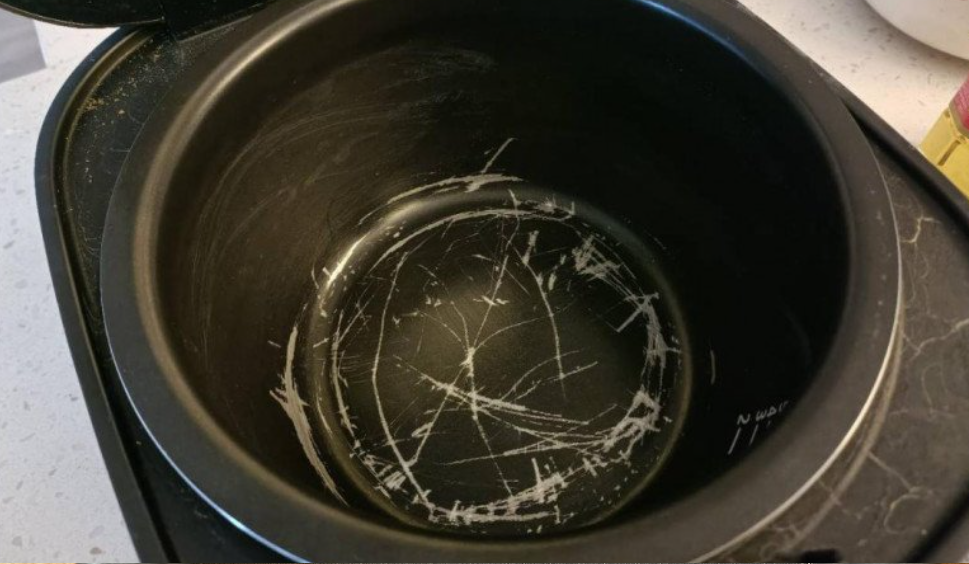Rice cooker pots are typically coated with PTFE, also known as Teflon. This coating acts as a protective shield. When it peels, it presents two main problems:
Sticking: A scratched rice cooker loses its nonstick properties, causing rice to stick to the bottom and making cleaning difficult.
Sun Shuhe, Honorary Chairman of the Food Safety and Nutrition Committee of the Chinese Medical Association, explains that food sticking to the pot can form acrylamide, a substance classified by the World Health Organization (WHO) as a potential carcinogen.
Aluminum leaching: Most rice cooker pots are made of aluminum alloy. If the coating is damaged, the exposed alloy can leach aluminum into food during cooking, especially at high temperatures, for extended periods, or with acidic ingredients.
According to Sun Shuhe, the underlying aluminum can come into direct contact with food. Long-term aluminum ingestion can affect the nervous system, reduce calcium, phosphorus, and vitamin D absorption, and increase the risk of Alzheimer's disease, rickets, and osteoporosis.
 |
Illustrative photo: Internet |
Illustrative photo: Internet
Zhang Zhaoming, Deputy Chief Engineer of the Household Appliance Testing Center at the China Household Electrical Appliances Research Institute, warns that if the inner pot has deep scratches or peeling, users should immediately replace it to avoid risks.
Three tips for safe rice cooker use
According to Zhou Yuhao, a Doctor at Beijing University of Chemical Technology and engineer at the Beijing Research Institute of Chemical Industry (Sinopec), users should follow three principles:
Don't use it for too long: The reasonable lifespan of a rice cooker pot is about 1-2 years. After this period, the coating is prone to peeling, allowing aluminum to leach into food.
Clean it properly: Avoid using steel wool or abrasive materials. Don't wash the pot immediately after use while it's still hot to prevent damage to the nonstick coating.
Avoid cooking acidic foods: Acidic dishes can react with the metal if the coating is damaged, causing aluminum to precipitate and contaminate food.
Nhat Minh (According to Paper)












